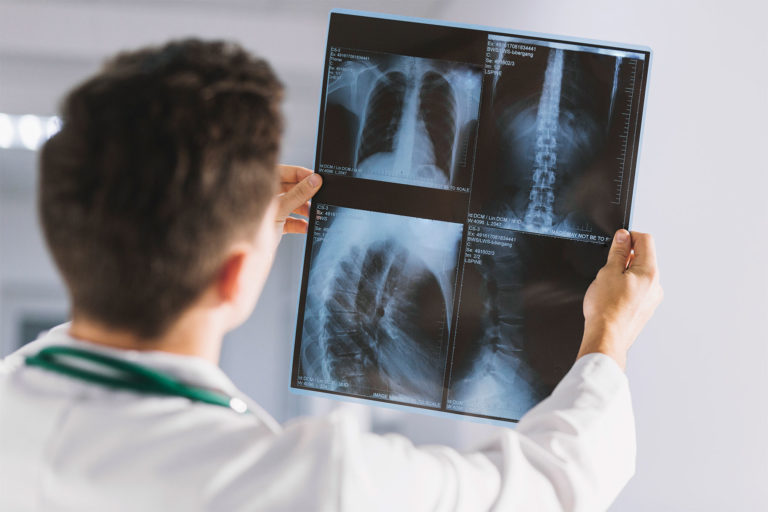The tough, rubbery discs that stabilize and support your spine are prone to injury and damage as you grow older. Two of the most common spinal disc injuries are bulging and herniated discs, which occur when age-related weakening causes the inner disc material (the nucleus) to push against the tough outer layer. As a result, the disc protrudes out of place from between the bones of the spine.
Perhaps you’ve heard your doctor, chiropractor, or therapist use the terms “bulging disc” and “herniated disc” to describe the same injury. While the two terms are sometimes used interchangeably, they are different conditions.
To help you understand the difference between bulging and herniated discs, and how that may affect treatment for your neck or back pain, we’ve put together the following informational guide.
If you’d like to learn more or need answers to any other questions you have, don’t hesitate to contact a member of our caring team today!
The Difference Between a Bulging Disc and Herniated Disc
Bulging and herniated discs are similar injuries. A bulging disc occurs when the inner disc material presses against the tough outer layer, causing the disc to “bulge” out of place in the spine. A herniated disc occurs when the inner disc material (the nucleus) pushes out through a tear or weak spot in the tough outer layer. A bulging disc can turn into a herniated disc if you continue to place stress and strain on the disc without seeking treatment.
Bulging and herniated discs are very common spinal injuries, and some don’t cause any pain. However, if disc material compresses or pinches nearby nerves in the spinal column, the condition can cause neck or back pain, and radiating symptoms like numbness, tingling, and weakness. A bulging or herniated disc in the lumbar spine is a leading cause of sciatica, which is characterized by one-sided nerve pain down the back, buttock, leg, and foot.
A herniated disc is more likely to cause pain, symptoms, and nerve compression. Many people live with a bulging disc for years without knowing, until an X-ray or MRI reveals it.
Causes and Risk Factors
Bulging and herniated discs are commonly caused by age-related wear and tear on the spine. As we age, the spinal discs begin to dry out and lose elasticity, making them less able to withstand the stresses and pressures they are put under on a daily basis. As discs become weaker, even normal activities can cause small cracks and tears to form in the tough outer layer.
While bulging discs are usually the result of slow, age-related degeneration, herniated discs can occur from acute accidents as well. Improper lifting and twisting movements can lead to an abrupt herniation.
Injured Discs Often Improve With Conservative Therapies
After diagnosing a bulging or herniated disc, your doctor will start treatment with conservative therapies. Your treatment plan might include:
- Rest
- Hot and/or cold therapy (heat packs, ice packs)
- Pain-relieving medications (acetaminophen, naproxen, ibuprofen)
- Physical therapy
- Cortisone injections
Your doctor may also recommend alternative treatments like manual adjustment (chiropractic care) and massage therapy to help relieve your pain and discomfort.
The goal of treatment is to improve your symptoms and preserve functionality while your bulging or herniated disc heals. In many cases, a disc injury will resolve on its own with time and conservative treatment. Most patients experience long-term relief from neck and back pain without the need for surgery.
When to Consider Surgery
If conservative therapies have been fully explored, but failed to bring pain relief, surgery is an option. The most common type of surgery for herniated discs is a decompression procedure called a discectomy. During the procedure, your surgeon will remove pieces of disc material causing nerve compression. For severe cases, your surgeon may remove the damaged disc entirely and replace it with an artificial disc or fuse the connected vertebrae to stabilize the spine.
In many cases, orthopedic surgeons can perform herniated disc procedures on an outpatient basis using minimally invasive, muscle-sparing techniques.
Reach Out to the Caring and Dedicated Team at BEST Surgery and Therapies Today
If you’re living with neck and back pain from a bulging or herniated disc, call BEST Surgery and Therapies today. Our highly skilled medical team will help you develop a personalized treatment plan to get you back to the people and activities you love as soon as possible.
Reach out to our patient care team today!
